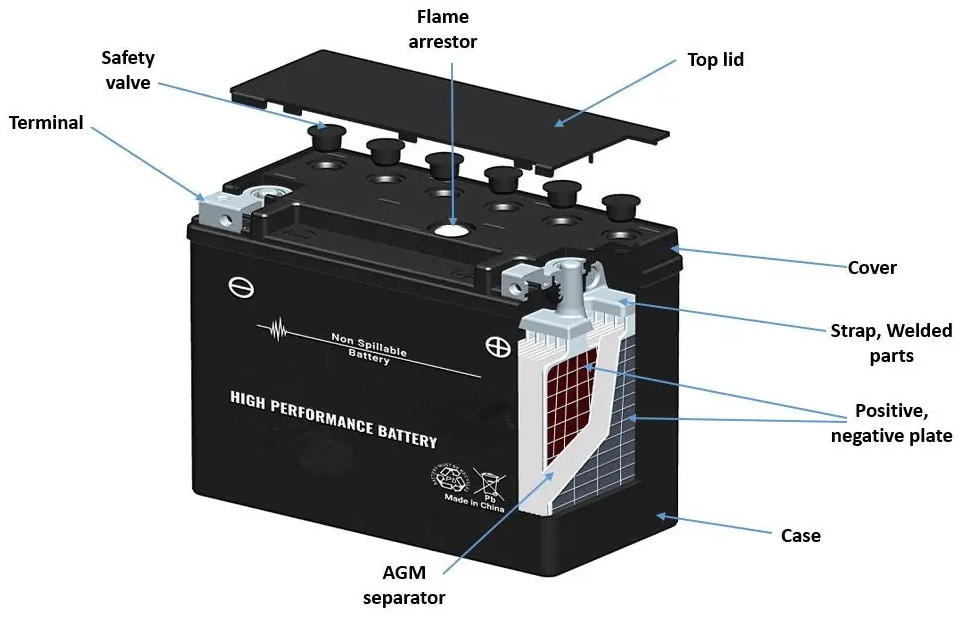On this page
Golf carts have become essential not only on the greens but also for transportation in communities, on campuses, and even for personal use. However, keeping these carts charged and ready is crucial, as running out of battery can disrupt your day. With advancements in charging technology, there are now several options to consider when choosing the best ev charger for your golf cart battery. From traditional wired chargers to the latest innovations, this article covers everything you need to know about selecting the right charging system for your golf cart.


The most common type, lead-acid batteries are affordable and provide reliable performance. They require periodic maintenance, such as checking water levels, but are widely available and relatively inexpensive.
A type of lead-acid battery that’s sealed and requires little to no maintenance. AGM batteries tend to last longer and have better resilience to deep discharges, but they’re generally more expensive.

These are becoming more popular due to their light weight, long lifespan, and fast charging capabilities. While lithium-ion batteries cost more upfront, their long-term benefits—especially for frequent golf cart users—often justify the investment.
New developments in charging technology are revolutionizing the way golf cart batteries are powered. Here are some of the latest innovations:
Solar chargers for golf carts are becoming popular among eco-conscious users. These systems use solar panels to capture sunlight, converting it into electricity to charge the battery. Solar charging can extend the time between conventional charges and reduce reliance on the grid, saving energy and cutting costs over time. Solar kits can often be added to existing carts, making it an easy upgrade.
Wireless charging is a convenient option that uses electromagnetic induction to charge the golf cart’s battery without a direct connection. Simply parking the cart over a charging pad allows the battery to recharge, eliminating the need to plug and unplug cords. This technology is still emerging in the golf cart market but is expected to grow as more manufacturers adopt it.
Fast charging systems allow users to charge their golf carts more quickly, cutting down on downtime. They’re particularly useful in commercial settings where multiple carts are in constant use. While fast charging can be slightly more expensive due to the technology involved, it offers the convenience of quicker recharging, which can be a significant advantage for busy users.
The cost to charge a golf cart varies based on factors like battery size, electricity rates, and frequency of use. On average, charging a standard 36-volt golf cart battery may cost between $0.50 to $2.00 per full charge, depending on local energy prices.
To calculate a more accurate cost, multiply the battery’s kilowatt-hour (kWh) capacity by your local electricity rate. For instance, if a 48-volt, 170-ampere-hour battery has a capacity of 8.16 kWh and the local rate is $0.12 per kWh, a full charge would cost approximately $0.98.
To calculate a more accurate cost, multiply the battery’s kilowatt-hour (kWh) capacity by your local electricity rate. For instance, if a 48-volt, 170-ampere-hour battery has a capacity of 8.16 kWh and the local rate is $0.12 per kWh, a full charge would cost approximately $0.98.
Modern chargers often come with intelligent charging features that maximize efficiency, extending battery life and reducing charging times. Features like these make chargers more effective:
Once the battery reaches full capacity, the charger automatically shuts off, preventing overcharging and battery degradation.
Many chargers use a multi-stage charging process that adjusts the current and voltage, optimizing the charging rate at each stage and prolonging battery health.
Some chargers can detect battery health and adjust charging behavior accordingly. For example, if a battery shows signs of aging, the charger might reduce the current to prevent damage.
When selecting a charger, there are several factors to consider:
Ensure that the charger is compatible with your golf cart’s battery type, whether it's lead-acid, AGM, or lithium-ion. Some chargers are specifically designed for one type, while others are compatible with multiple types.
Golf carts commonly use 36-volt or 48-volt batteries, so you’ll need a charger that matches your cart’s voltage requirements.
Fast chargers are useful for users who need quick turnarounds, while standard chargers work well for those who can leave their cart plugged in overnight.
Portable chargers are easy to transport and can be used in various locations, while wall-mounted chargers offer a dedicated charging space at home. Solar kits and wireless options may require more extensive installation but offer added convenience and energy savings.
Chargers vary widely in price. Basic models may start around $100, while advanced models with features like fast charging or solar compatibility can go up to $500 or more.
Look for chargers with built-in safety mechanisms, such as overload protection, thermal protection, and reverse polarity protection, which protect both the user and the battery.
The future of golf cart charging looks promising with technological advances aimed at convenience, speed, and sustainability. Some exciting trends to watch include:
As solar technology advances, solar charging systems for golf carts are expected to become more efficient and effective, allowing for faster and more reliable charging directly from sunlight.
Future chargers may include smart features that connect to IoT devices, allowing users to monitor battery health, charging status, and other metrics from their smartphone or tablet.
Ultra-fast charging technology could further reduce charging times, making it possible to fully recharge a golf cart in under an hour. This advancement will be especially beneficial in high-demand environments where carts are used continuously.
Wireless charging technology is likely to become more accessible and reliable, with expanded compatibility across different golf cart models and battery types.
Choosing the right charger for your golf cart battery is essential for maintaining battery health, saving on energy costs, and improving convenience. With options like solar, wireless, and fast charging systems, you can select a charging solution that aligns with your needs and usage. As technology evolves, golf cart chargers are likely to become even more efficient and eco-friendly, offering increased convenience and flexibility for users. Whether you’re a casual golfer or a commercial user, the right charging system can keep your cart ready and running for years to come.